While hair loss may be a harmless condition with little or no physical consequences, its psychological impact is more serious. Your hair is an important aspect of self-image and self-expression both of which can be destroyed by hair loss. This article takes an in-depth look at the condition, its causes, and any psychological repercussions.
Definition
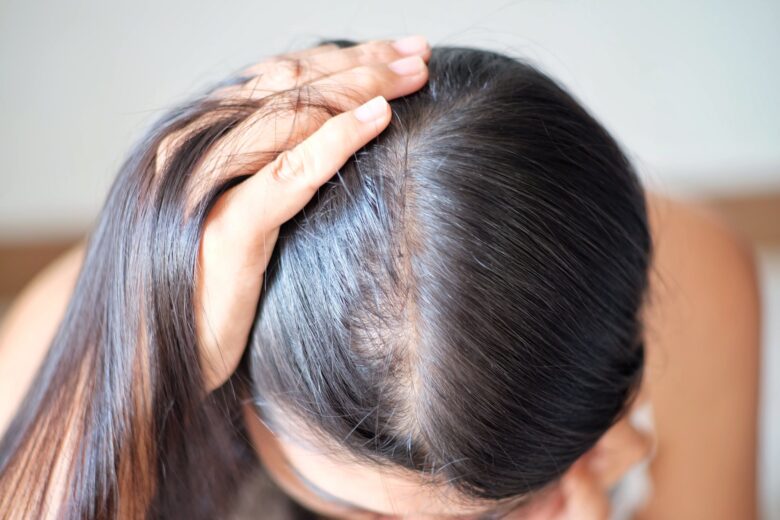
Source: hairline.com
Hair loss refers to a dermatological condition that affects humans irrespective of age or gender. Certain fundamental factors may lead to this condition – factors which will be discussed later on – yet there is a limited number of dangerous physical effects. The basic practical issues with lower hair count include less cranial cushioning and less insulation from the sun’s rays. Constant itching and scalp irritation are also linked to the condition.
Despite the little impact it has on physical health, it can have substantial psychological repercussions and negatively affect the quality of life.
Alopecia is a widespread issue that affects about 50% of people irrespective of sex.
There are two broad categories of the condition, scarring (cicatricial) alopecia, and non-scarring. Hair loss on the scalp is further divided into focal or diffuse alopecia.
Causes
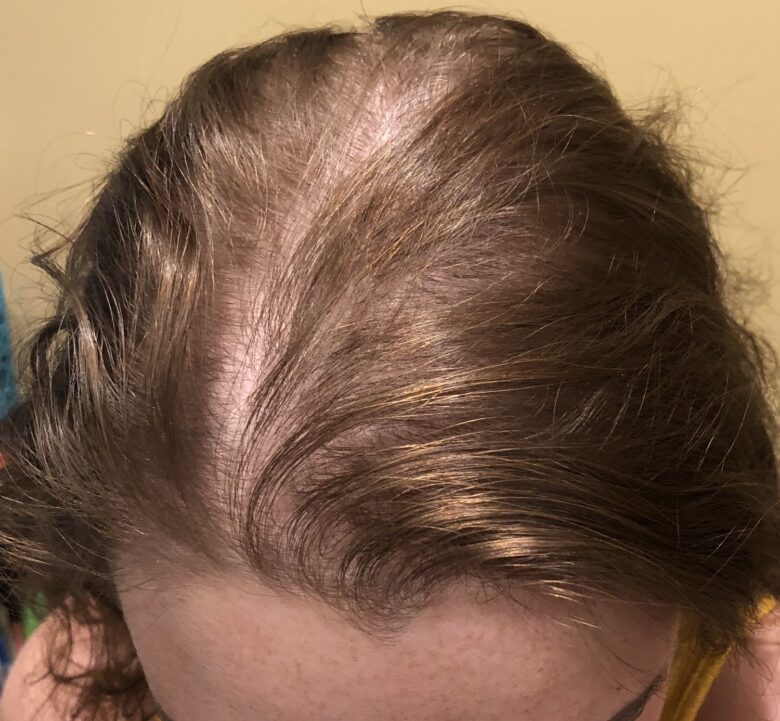
Source: mancusosalon.com
Several factors can lead to alopecia – these factors depend heavily on the class or type of the disorder; whether it is scarring, non-scarring, and focal or diffuse.
Scarring alopecia isn’t as common as the others. Its causes include infection, injury, and inflammatory skin conditions. The causes of non-scarring focal alopecia include alopecia areata (an autoimmune disorder) and fungal skin infection.
Diffuse hair loss may occur after shedding and may be stress-induced (telogen effluvium). Alopecia areata, medications, and certain systemic conditions like hyperandrogenism, anaemia, and thyroid disease are some of the other causes of diffuse hair loss.
Some mental conditions including endogenous depression and acute anxiety have been touted as probable causes of this disorder.
Other Things You Need to Know
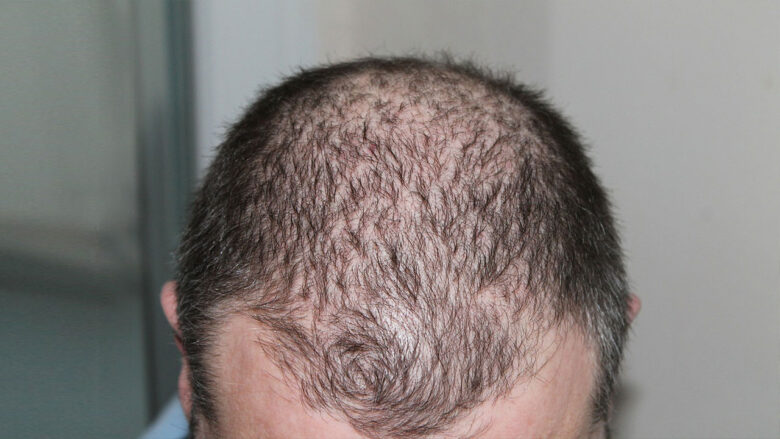
Source: nostoryleftbehind.com
The more hair one loses, the less likely the chances of regrowth.
- In instances where there is regrowth of lost hair, a loss is likely to recur.
- After hair is lost, the strands that grow to replace it may be different in colour and texture.
- There is insufficient medical treatment for the condition, particularly for the most drastic forms of alopecia.
- There are surgical options available including transplants but these are only applicable to particular types of alopecia and come with their own constraints.
Psychological Effects
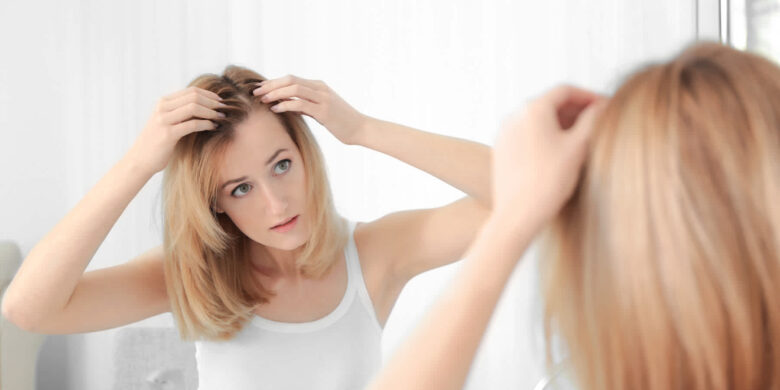
Source: everlywell.com
There is very little research in existence when it comes to this topic.
Evidence shows that people who suffer from this condition also suffer some psychological effects. They often face severe emotional pain which often translates as personal, social, and work-related issues. Individuals who undergo more intense loss are more prone to psychological distress than others with a milder experience.
Hair loss affects an individual’s appearance, too. It may become more heavily influenced when the individual loses eyelashes and eyebrows, because both are distinctive features of a person’s appearance. Society as a whole may sometimes view hair loss as an inability of the victim to conform to the standard of physical appearance that we are used to in society, which is a further drawback.
The connection between hair loss and the consequent psychological repercussions can be complicated by such loss resulting from stressful experiences or occurrences in life. This complication can result in extra distress, anxiety, and depression. Women who undergo higher levels of stress are 11 times more likely to suffer hair loss than their counterparts who do not experience such high levels of stress.
Individuals who experience balding effects are more susceptible to psychological disorders than those who have not suffered from it. The psychological disorders alluded to above may include depression, anxiety, social phobias or paranoid disorder.
Clinical Features of Anxiety/Depression
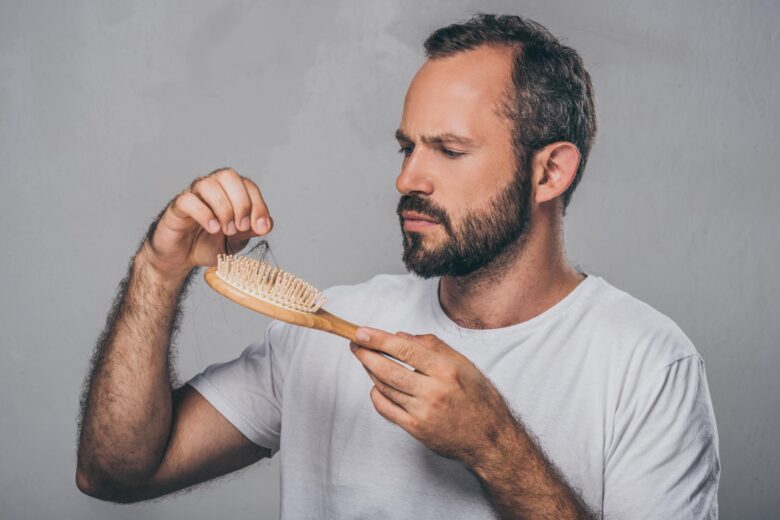
Source: standard.co.uk
Hair loss may result in depression, anxiety, and social phobia for individuals who experience it.
- Depression can result in a lowering of mood or feeling. It means that the individual shows little or no interest or pleasure in pastimes and other activities, as well as a lack of energy and/or insomnia.
- Anxiety leads to undue worries, inability to control your thoughts, and a feeling of increased nervousness. Individuals suffering from anxiety may experience palpitations and sweating.
- Social phobia or avoidance behaviours can arise as a result of anxiety which will in turn lead to social and financial hardship.
- The major characteristic of social anxiety is the fear of humiliation or the fear of being judged socially.
These symptoms often have a serious impact on a person’s self-esteem, ability to work or study, and general well-being.
Treatment
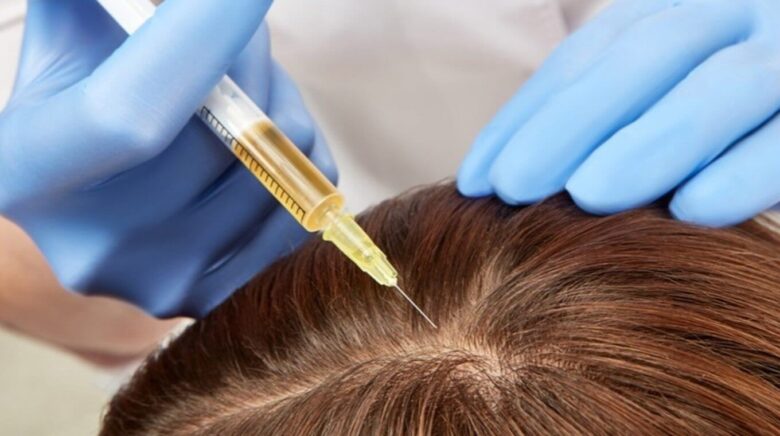
Souce: veraclinic.net
According to GetHair.Co.Uk, there are few medical options available for treatment. This means that individuals suffering from this condition are often advised to undergo a hair transplant or alternatively to use wigs.
How is Anxiety or Depression Treated?
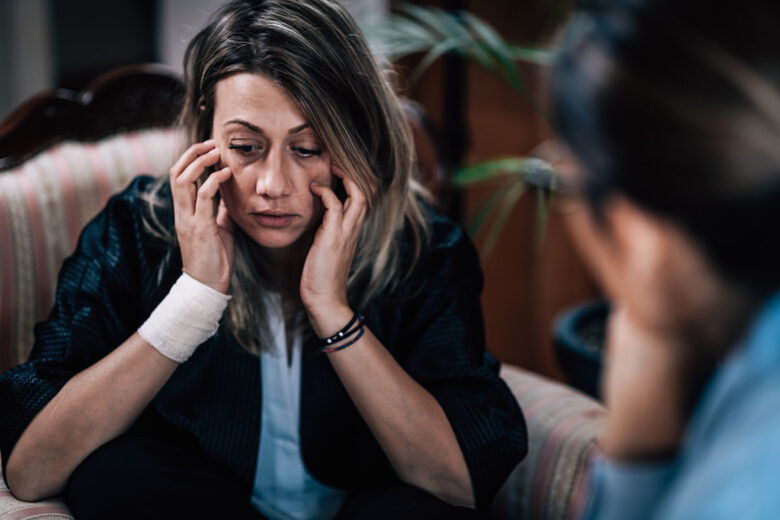
Source: integrativelifecenter.com
Cognitive behavioural therapy and support groups are major treatment procedures for anxiety and depression caused by hair loss. Medications such as antidepressants can also be utilised to handle anxiety and depressive episodes.
People who suffer from this condition must undergo psychological treatment but there is no specific method that is particularly effective, and the treatment will differ from one individual to the next. Most research on the problem is concentrated on the wider issues of managing hair loss instead of particular techniques or strategies.
It is important to get a strong hypothetical knowledge of the psychological consequences of alopecia. This includes an understanding of the immune system, stress response, and psychological reactions to hair loss. It is also necessary to establish the right strategies and regimes for treating this disorder. These strategies in turn need to be implemented and examined in a clinical setting.
Self-consciousness regarding body image is regularly portrayed and discussed in every aspect of the media. It is necessary to investigate the role the media plays in constantly promoting the expectation of a full head of hair. Elements of the media can be incredibly judgemental when it comes to those suffering from hair loss, and the psychological effects of those who experience it must not be underestimated.

